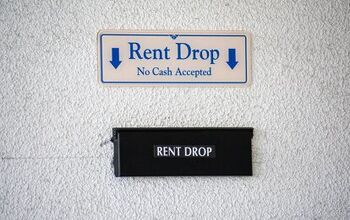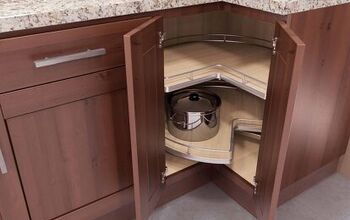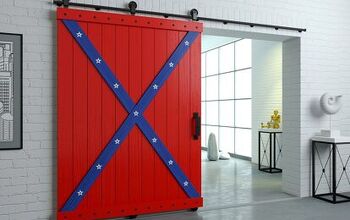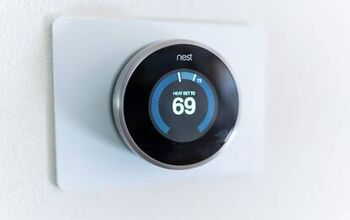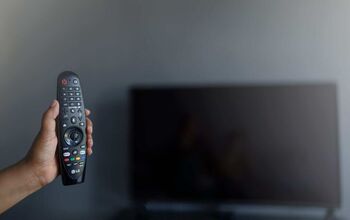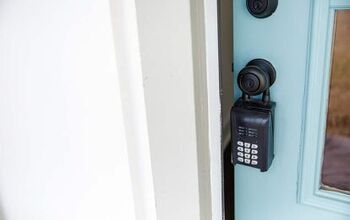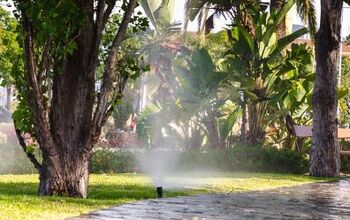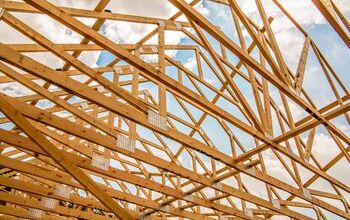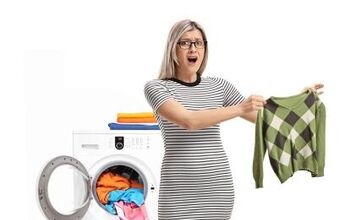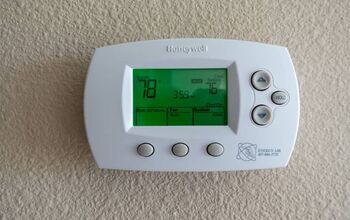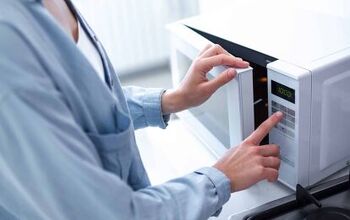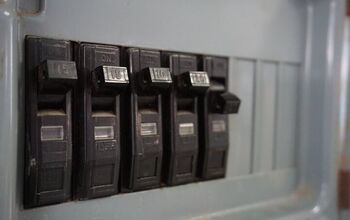What Do They Check In An Apartment Inspection?

Does the prospect of your landlord inspecting your apartment make you feel a little bit anxious? If so, you’re not alone, as it’s easy to let your imagination run wild and assume the worst. So, what do they check in an apartment inspection?
During an apartment inspection, they typically check important things like your HVAC system and plumbing. Your landlord may also check your smoke and carbon monoxide detectors to make sure you regularly replace the batteries. They will also likely inspect your apartment for lease violations, such as smoking, pets, and damage.
There’s also a good chance that they’ll look for signs of pests, like bugs and rodents. Follow along as we explore what to expect from an apartment inspection.
What Does An Apartment Inspection Entail?
1. HVAC System
It’s no secret that HVAC maintenance is expensive and frustrating for renters and landlords alike. However, renters don’t have to pay for the cost of HVAC maintenance, as this responsibility falls on the landlord. That’s why a landlord must keep an eye on the air conditioner and furnace that they provide to their tenants.
A poorly managed HVAC system can lead to thousands of dollars in repairs. Landlords sometimes require their tenants to handle some HVAC maintenance tasks, like replacing filters. An inspection will let them know that you’ve kept up with maintenance.
The results can also reveal underlying problems and give an idea of what condition your HVAC system is in. Clean the area near your AC and furnace to ensure easy access. Doing so will make the inspection easier and get you in their good graces.
2. Appliances
Many landlords include several appliances in the lease, such as boilers, water heaters, and dishwashers. Some landlords even provide a washing machine and dryer, which typically increases the cost of rent. Regardless, they must ensure their appliances are being cared for and work properly.
That’s why checking appliances is an important part of any apartment inspection. Of course, they will only check the appliances that they provided, as how you treat appliances you bought doesn’t affect them. An appliance’s condition is important, as it can ultimately affect your apartment’s condition.
For example, a dishwasher or water heater that’s in bad condition can cause dangerous leaks and electrical problems. The results of the inspection can let them know whether repairs are needed.
3. Floors
Naturally, floors undergo lots of wear and tear over time due to foot traffic and furniture. Even cleaning chemicals can eventually damage your floors after years of cleaning them. Checking for floor damage is a big part of a basic apartment inspection.
Don’t worry about this, as floor damage doesn’t necessarily mean that it’s your fault. They most likely want to check for cosmetic damage and make sure the floors are safe. You can make the inspection go smoothly if you carefully clean the floors beforehand.
This will at least make a good impression on the landlord. Voice your concerns if you’re worried about cracked tiles and splintered floors. You can also make maintenance requests if the floors are uncomfortable and even dangerous.
4. Doors And Windows
Like anything, doors and windows go through a lot of wear and tear over time. This can eventually cause accessibility issues and even create a weak point in home security. After all, what burglar wouldn’t love to find weak doors and windows that they could easily bust through?
Depending on how the inspection goes, your landlord may even replace your doors and windows. Don’t worry that you’re going to get in trouble if your doors and windows are damaged. Unless there’s evidence that you took poor care of them or burned them somehow, you’re most likely fine.
Don’t hesitate to ask your landlord for weatherstripping or a draft stopper if you don’t have one. However, they may require you to purchase weatherstripping if it’s not included in the lease. That’s worth the cost as it will keep pests and drafts out of your apartment.
5. Plumbing Fixtures
Everyone dreads paying for plumbing repairs, as even the simplest fixes can cost hundreds of dollars. Landlords understand this well and want to do everything they can to prevent expensive plumbing problems. One of the best ways to do this is to inspect your plumbing fixtures and take care of preventive maintenance.
They will likely check your pipes, faucets, and drains during your apartment inspection. During the inspection, they may offer simple tips to help you keep your plumbing fixtures running well. After all, well-informed tenants can save landlords a lot of money and stress.
The inspection can also show them whether you’re flushing things down the drain that you shouldn’t. That includes grease, which can severely damage your plumbing and cause hundreds of dollars in repairs.
6. Lease Compliance
You must sign a lease before you move into an apartment, and that lease includes several rules. For example, the lease may specify rules regarding smoking, pets, noise, and basic maintenance. Whoever conducts the inspection can keep an eye out for signs that you’ve violated the lease.
They may check for signs that you smoke or keep pets in the apartment. This includes scratch marks, bad odors, litter boxes, and animal droppings. Unfortunately, your landlord can evict you if they discover lease violations during the inspection.
Ideally, you should go through your apartment and make sure there are no signs of lease violations before the inspection. Going forward, you must comply with the lease rules to ensure you don’t have to live in fear of eviction.
7. Pests
Your landlord probably dreads pests in your apartment as much as you do. After all, they must likely spend money and hire an exterminator to take care of the problem. It’s best to catch pests early on, and that’s why landlords check for them during an apartment inspection.
Some people understandably don’t know what to look for regarding pests. After all, they’re busy with work and the everyday responsibilities of life. However, landlords and their maintenance staff know what signs to look for, such as droppings and gnaw marks.
They will keep an eye out for such signs to see if it’s worth calling an exterminator or pest control service. Going forward, it’s important to familiarize yourself with the signs of insect and rodent infestations. That way, you can call your landlord long before an infestation takes hold.
8. Hazards
Even the most well-maintained apartments are prone to some hazards that can put you at risk. For example, old, outdated electrical outlets and wires can cause fires. Defunct smoke and carbon monoxide detectors can also put you at risk in your apartment.
Identifying hazards is a big part of an apartment inspection, as it should be. The last thing any landlord wants is to find out one of their tenants suffered an avoidable tragedy in their apartment. Keep in mind that most landlords expect their tenants to change the batteries in their smoke and carbon monoxide detectors.
Because of that, you may get a “slap on the wrist” if your landlord discovers you haven’t kept up with it. However, that’s hardly enough to face fees or eviction.
How Much Notice Do Landlords Have To Give Before An Inspection?
Landlords must typically give at least 24 to 48 hours’ notice before an inspection. Keep in mind that this can vary based on regulations regarding landlord and tenant rights in some states. This notice typically comes via a written letter, but they may also call you.
Your landlord cannot simply enter your apartment for an inspection without a heads-up. However, they can enter your apartment without notice in the event of an emergency. That includes a gas leak, fire, and other severe situations that require immediate attention.
When Can A Landlord Inspect My Apartment?
Your landlord can inspect your apartment as needed, provided they give enough notice. However, most landlords are unlikely to inspect a tenant's apartments more than once or twice yearly. Some landlords never inspect their tenants’ apartments, so it may not happen.
Summing It Up
Apartment inspections typically entail checking the appliances and plumbing fixtures to see what condition they’re in. Your landlord may also check for signs of pests, pets, smoke, and common lease violations. Otherwise, they will likely check your smoke detector, carbon monoxide detector, floors, windows, and doors.
Related Guides:

Nick Durante is a professional writer with a primary focus on home improvement. When he is not writing about home improvement or taking on projects around the house, he likes to read and create art. He is always looking towards the newest trends in home improvement.
More by Nick Durante










